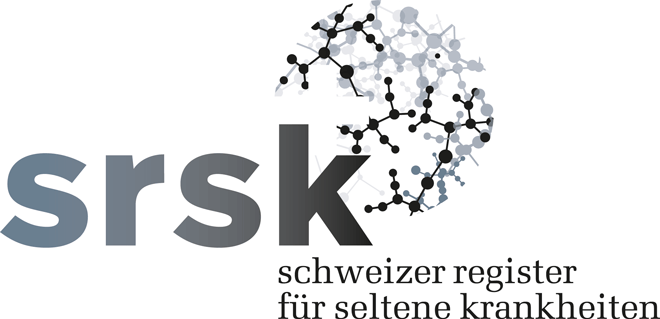Ein Haupziel des Schweizer Registers für seltene Krankheiten (SRSK) ist der Aufbau einer Plattform, um Forschung zu seltenen Krankheiten zu ermöglichen. Durch die zentrale Datenbank für seltene Krankheiten erleichtert das SRSK die Planung zukünftiger Studien und fördert die Interoperabilität, wodurch Prozesse effizienter werden.
Die nachfolgende Seite ist aktuell nur in Englisch verfügbar.

Ancillary SRDR Studies
Core Datasets and Minimal Datasets in the SRDR allow for the description of the frequency (i.e., incidence and prevalence) of all rare diseases in Switzerland. The SRDR also allows for conducting ancillary studies.
Currently the following ancillary studies are expected:
- Medical record studies that involve the additional collection of existing health-related data from medical records (e.g., collection of detailed diagnostic, phenotype, or treatment information).
- Questionnaire surveys or interviews with physicians that evaluate medical procedures.
- Questionnaire surveys or interviews with patients that record patients’ quality of life.
- Clinical studies (e.g., observational or interventional studies) that collect additional data prospectively.
- Linkage studies that use data from routine statistics for instance form the Federal Statistical Office (e.g., population statistics, vital statistics, hospital statistics)
Ethics
Ancillary studies involving the re-use of data already available in medical records, do not need further ethical approval if
- the scope of the ancillary medical record study is within the aim of the SRDR;
- the informed consent and patient information from the SRDR are used;
- there are no additional interventions or assessments performed;
- the additional data are maintained as part of the SRDR with SwissRDL;
- the financing for the ancillary SRDR study aligns with approved SRDR funding sources (health care institutions, universities, the Swiss Federal Government, Swiss Conference of the Cantonal Ministers of Public Health (GDK), patient organizations, foundations, or the pharmaceutical industry)
Questionnaire surveys or interviews with physicians or patients only require an amendment to the SRDR ethics protocol, if the above mentioned conditions are met.
Clinical studies that collect additional data need separate ethical approval.
Ancillary SRDR linkage studies do not need separate ethical approvals; however, the Ethics Commission of the Canton of Bern (KEK Bern) must be informed about the planned linkage before data transfer. These data underlies contracts with specific data sources (e.g., Federal Statistical Office).
Funding
Ancillary studies (medical record studies, questionnaire surveys or interviews, and clinical studies) require separate funding.
Study Request
Researchers can submit a request to use the data for research purposes. The SRDR Steering Board checks whether the planned research project meets all legal requirements and follows the objectives of the SRDR. If all requirements are met, the data is made available in anonymized form.
The document Regulations for research, collaborations, data sharing, and publications contains detailed information about the procedure for making study requests and legal aspects of doing so.
Integrating Disease-Specific Registries with the SRDR
The SRDR offers the possibility to integrate additional data from existing disease-specific registries not included in the Core Dataset into the SRDR database.
SwissRDL (medical registries and data linkage) administers the SRDR. To integrate additional disease-specific registry data into the SRDR, SwissRDL offers 2 options:
- An additional form in the SRDR. There is a maximum of 15 additional variables in the form.
- An independent registry (REDCap or MEMdoc Module). The data transfer from such an independent registry from SwissRDL to SRDR is automatic.
If you are interested in integrating disease-specific registry data with the SRDR using 1 of these 2 options, SwissRDL can provide a quote for the costs of implementation, operation, maintenance, and support. If you are interested, please contact us to discuss options.
FAQ
Coming soon…
